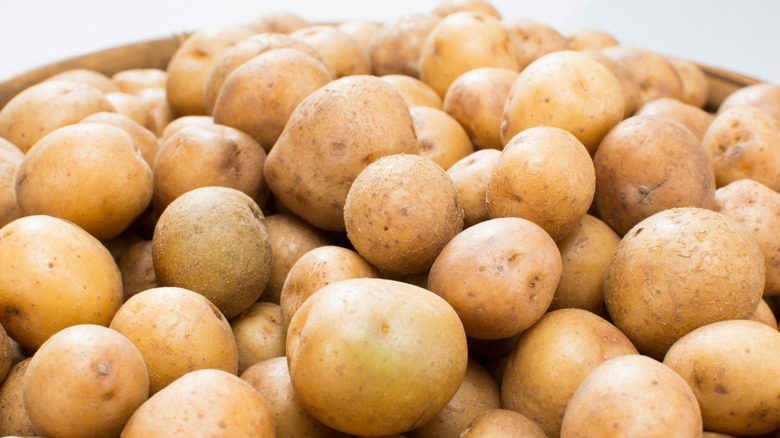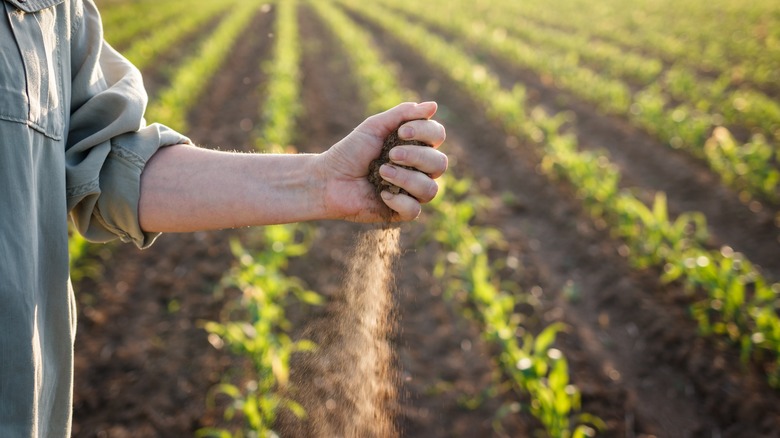What The Extreme Heat In Europe Means For Potatoes
On August 23, Reuters reported that in addition to soaring temperatures, Europe was experiencing "its worst drought in at least 500 years." This combination has had tangible impacts on the environment: In July, the surface of a London airport runway melted; train tracks overheated in other parts of Britain and caused delays; and popular areas of countries like France, Greece, and Spain were plagued by wildfires (per The New York Times). By August, The Washington Post notes that parts of France and England saw even hotter forecasts that prompted Amber warnings from the U.K. Met Office.
On top of the existing pile of factors keeping food costs high in the EU and around the world, European farmers now have to deal with the consequences of scorched crops as they head into a new season. Unfortunately for customers in the U.K., the heat will cause the price of produce — including potatoes, onions, sugar beets, apples, and hops — to soar in the coming months.
Potatoes need a lot of water, which is bad news in a drought
"We put 2018 as a once-in-a-lifetime drought, but here we are again," English farmer Rodger Hobson told CNBC. Large swaths of the crops in his Yorkshire fields, which usually yield upwards of 30,000 tons of carrots, haven't made it through the heat. Vegetables like carrots, onions, and potatoes usually thrive during British summers, which typically include plenty of rainfall. But like the houseplant you forget to water, farms like Hobson's are heading into fall with dry soil and wilting crops across the U.K., which leaves suppliers with no choice but to jack up the prices of the surviving harvest. The outlet reports that Hobson measured a scant six millimeters of rain in the third week of August; the area's typical monthly average is 70 millimeters.
In a recent report, the U.K. government's Environmental Agency warned that the production of potatoes, carrots, onions, and other prolific U.K. crops are expected to fall "between 10% and 50%" due to a limited number of irrigation options (via The Guardian). Since potatoes require lots of water, spud growers are expecting "a decline of up to 40%," per CNBC. The Environmental Agency is now challenged with helping provide farmers with irrigation while making sure folks at home have plenty of drinking water.

